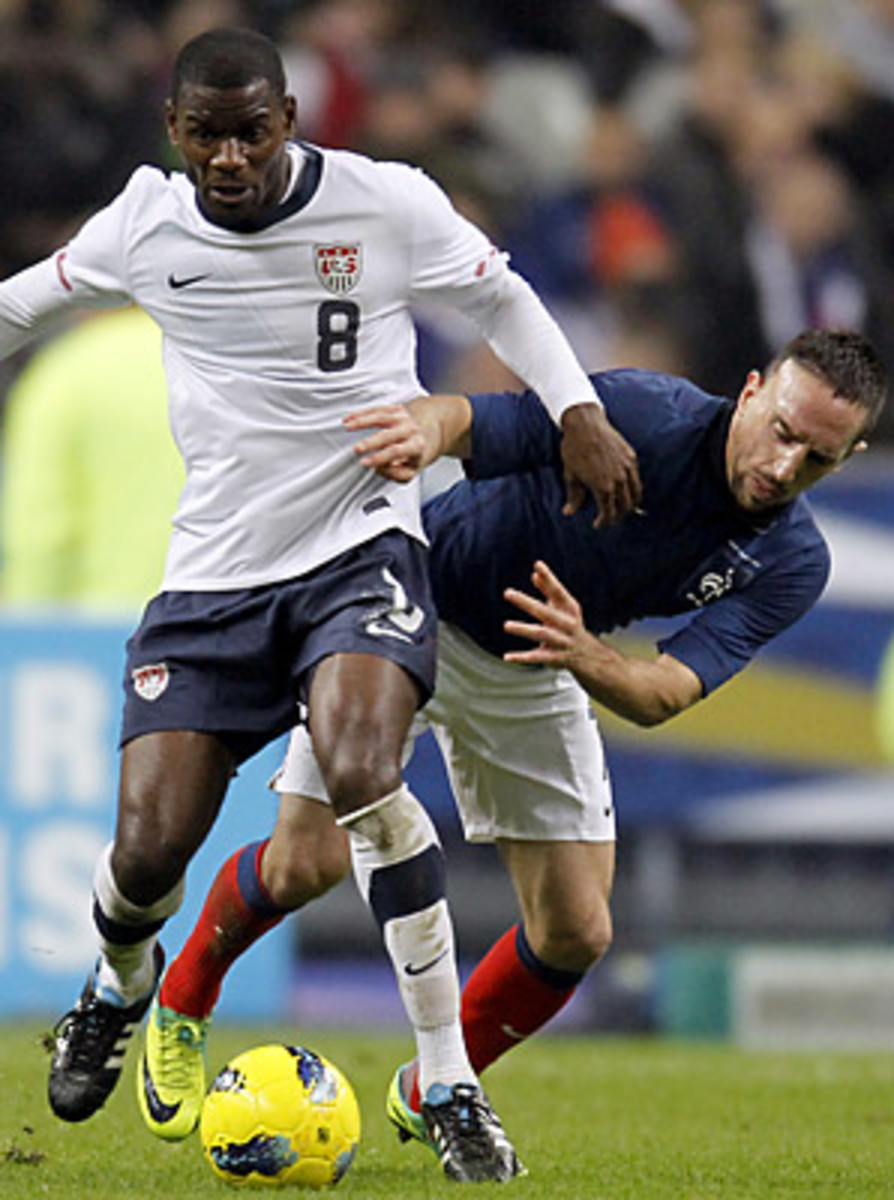
U.S. team looks to end offensive drought in game against Slovenia
That's the bad news. The good news is that these games are a lot less important than the ones in that '98-'99 stretch, which included all three matches of World Cup '98. The last two games in that stretch also happened to be the first two in the tenure of Bruce Arena, who would go on to produce when it mattered most, leading the U.S. to the World Cup quarterfinals in 2002.
I happened to be on hand when the U.S. broke that scoring slump with a bang, slamming Germany 3-0 in Jacksonville, Fla., on Feb. 6, 1999. It was only a friendly, but the win boosted the U.S. players' confidence and set the tone for what was to come under Arena. The U.S. would go on to beat Germany again that summer in the '99 Confederations Cup in Mexico on the way to a third-place finish behind only El Tri and Brazil.
Is there a chance Tuesday's Slovenia game could be the Klinsmann Era's version of that big win in Jacksonville? Perhaps, but it won't be easy. The U.S. is on the road, and Slovenia is playing its first game under new coach Slavisa Stojanovic, who has called in 10 of the players who were part of the classic 2-2 tie between the U.S. and Slovenia at World Cup 2010. Tiny Slovenia has punched above its weight over the past decade, qualifying for two World Cups (2002 and '10), but it missed out on Euro 2012, finishing fourth in its qualifying group behind Italy, Estonia and Serbia. The players will no doubt want to make a good impression on the new boss.
And yet there are some parallels between what Klinsmann is trying to do with the U.S. and what Arena was attempting back in early 1999. Just as Arena employed a strategy that involved more defensive pressing upfield than that of his predecessor, Steve Sampson, Klinsmann has opted for more high-pressing than the man he replaced, Bob Bradley, who preferred to defend deep and strike on the counter against tougher opponents.
That was even clearer to me on Sunday when I re-watched the U.S.-France game with the sound on mute. When it comes to team defense, the U.S. under Klinsmann is trying to win the ball in more advanced positions, but that also means 1) the U.S. defense is susceptible to longballs, like the kind France scored on, and 2) the U.S. needs more creativity to break down a defense once it wins the ball in those positions.
Against France that creativity was largely present in just one player: Clint Dempsey, who worked tirelessly and drew plenty of fouls on the French (who focused on him) but couldn't do everything by himself. It also called into question Klinsmann's choice of using three natural holding midfielders -- Maurice Edu, Danny Williams and Kyle Beckerman -- and continuing to leave Michael Bradley on the bench, even though Bradley provides a bit more going forward than Edu.
Granted, Klinsmann is lacking in creative options with injuries to José Torres and Stuart Holden and the absence of Landon Donovan, but it's fair to ask why Sacha Kljestan and Benny Feilhaber (and to a lesser extent Freddy Adu) are absent from the current squad. It also seems odd that Klinsmann is deploying several players in positions that aren't the ones they occupy with their clubs, including Timmy Chandler (a natural right back playing on the left), Williams (a defensive midfielder playing right midfield) and Edu (a defensive midfielder playing as an attacking central mid).
Perhaps Klinsmann will give Bradley a chance to start against Slovenia and provide some of the attacking thrust that Bradley was often able to do by pushing forward in the latter parts of games coached by his father. It's time for the U.S. to take a few more chances and put some goals on the scoreboard, not least because forward Jozy Altidore has been doing the work up top that should get rewarded with results. It's high time the U.S. broke out under Klinsmann. Why not Tuesday?




